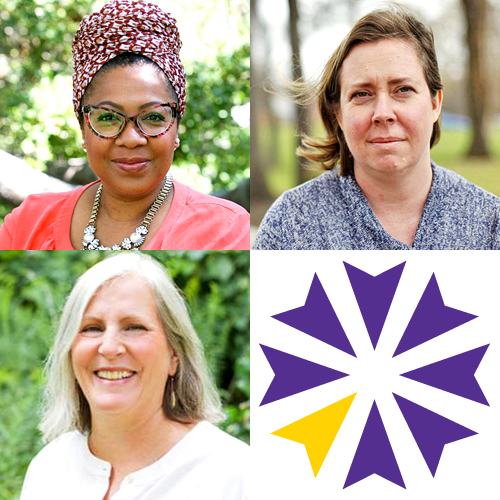 IBCLC Detailed Content Outline: Clinical Skills Focused CERPs - Section VII
IBCLC Detailed Content Outline: Clinical Skills Focused CERPs - Section VII
Access CERPs on Clinical Skills for the IBCLC Detailed Content Outline recertification requirements. Enjoy convenient on-demand viewing of the latest Clinical Skills focused IBCLC CERPs at your own pace.
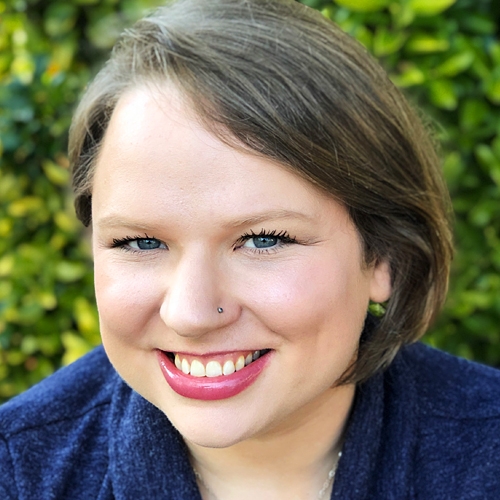
Breastfeeding Without Nursing: Why Do Some Breastfeeders Exclusively Pump and What Can We Do to Support Them?

Fiona Jardine is a PhD candidate at the University of Maryland’s iSchool where she is conducting pioneering research into the experiences of those who exclusively pump human milk, specifically focusing on the information they need, how they find it, and what they do with it. In addition, she is able to provide insights into many different aspects of exclusive pumping thanks to the breadth of the data she collected; follow along with her findings here: bit.ly/EPresearch. Fiona is also an Advanced Lactation Consultant and a postpartum doula so that she can provide the support that she believes is so desperately needed, especially in the fourth trimester. Find out more about Fiona, and the Universal Breastfeeding Symbol she designed, on her website: fionamjardine.com.
Exclusively pumping (EPing) provides a solution to some breastfeeding problems, while still providing most of the benefits of human milk. In addition, the prevalence of EPing is on the rise. However, there is a lack of data on EPing, especially concerning the reasons for EPing and the information and support needs of EPers. My study collected qualitative and quantitative data on these (and many other) topics from over 2,000 EPers; the findings indicate that EPers often get no or bad advice from their health/lactation care providers. This poor knowledge of and negative opinions about EPing often contribute to EPers feeling frustrated and unsupported. In addition, these undesirable experiences threaten both the initiation and duration of breastfeeding-via-EPing. This presentation focuses on the reasons why EPers breastfeed without nursing, their feelings about EPing, their information needs, and what lactation care providers can do to better support EPers.

View Details / Enroll
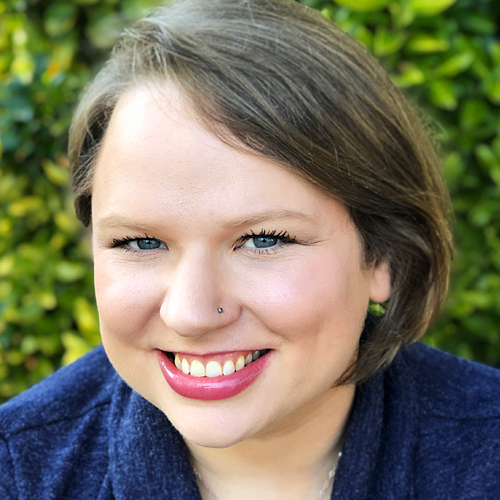
View Details / Enroll
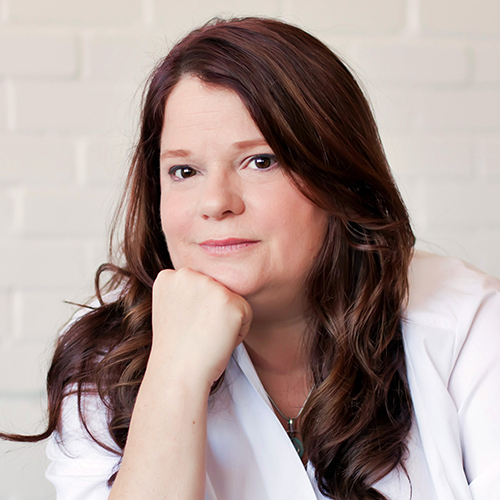

Barbara D. Robertson, IBCLC, has been involved in education for over 34 years. She received a Bachelor’s degree in Elementary Education in 1988 and her Master’s in Education in 1995. Barbara left teaching elementary students in 1995 to raise her two children. Barbara is now the Director of The Breastfeeding Center of Ann Arbor and of the brand new business LactaLearning.
The Breastfeeding Center of Ann Arbor will still continue to serve breast/chestfeeding families and now LactaLearning will be dedicated to all of Barbara’s professional lactation trainings. Barbara has developed two 95 hour professional lactation training, a group training and a completely self study training with Nancy Mohrbacher. Barbara’s idea of creating professional book groups has exploded with her hosting Making More Milk with Lisa Marasco, Supporting Sucking Skills with Cathy Watson Genna, Breastfeeding Answers, 2nd Edition with Nancy Mohrbacher, and new for the fall, Safe Infant Sleep with Dr. James McKenna. Barbara will be hosting a one day online conference in the fall with Lisa Marasco and Cathy Watson Genna using all of her tech savvy skills to make this a one of a kind experience. Barbara is also a speaker for hire on a wide variety of topics including Motivational Interviewing. Barbara volunteered for the United States Lactation Consultation Association as the Director of Professional Development for 4.5 years.
She just retired as Associate Editor for Clinical Lactation, a journal she helped create for USLCA. Barbara has free podcasts, a blog, and Youtube videos which can all be found on her websites lactalearning.com and bfcaa.com. She has written many articles as well. She loves working with parents and babies, helping them with breast/chestfeeding problems in whatever way she can.
Topic: Breastfeeding: Baby’s First Milestone - [View Abstract]
Topic: Clinical Assessment and Management of Low Milk Production - [View Abstract]
Topic: Deconstructing Online Messaging: Ethical Considerations - [View Abstract]
Topic: Milk Sharing and Milk Banking: Building Knowledge for Better Outcomes - [View Abstract]
Topic: The Baby's Not Gaining Weight! Now What? - [View Abstract]
Topic: The Great Nipple Shield Debate - [View Abstract]
Breastfeeding is widely acknowledged as being the healthiest way to feed an infant for at least two years. In the United States of America, the CDC 2014 Breastfeeding Report Card states that 79.2% of mothers start out breastfeeding. However, as the babies get older, these numbers plummet. Only 49.4% of these babies are receiving any breastmilk by 6 months of age. We know from the literature that the primary reasons mothers stop breastfeeding in these early months are pain and worrying about their breastmilk supply. These are problems with solutions if the proper support is in place. Why is this support lacking? Is it because for all of the talk, “breast is best”, the importance of breastfeeding is not really valued? What if successful breastfeeding was reframed into a milestone? Baby’s first milestone? This presentation will explore other milestones, walking, talking, and learning to read, and what happens if babies and young children are not reaching these markers in a reasonable time frame. What support systems are in place to help these milestones be achieved if babies are faltering? The possible reasons for a baby not being able to breastfeeding and possible solutions will then be examined from the lens of having proper support systems in place.

View Details / Enroll
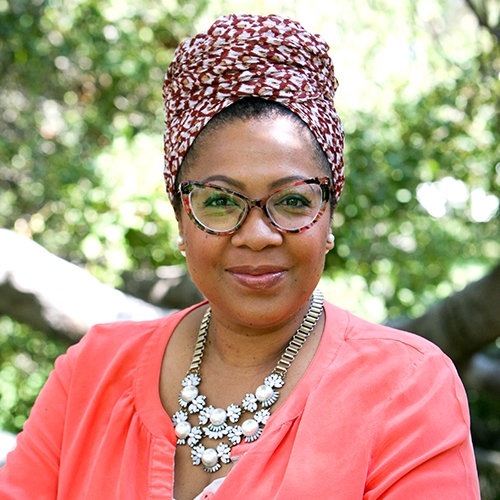
BreastSide Manner: A Patient-Centered Approach to Lactation Support

Nekisha Killings is an equity strategist, internationally board-certified lactation consultant, and maternal and child health advocate who speaks, teaches, and facilitates on topics related to equity and dismantling bias across various sectors.
When she is not home educating 4 future world changers, she acts as a Director of Equity, Inclusion and Belonging at Lactation Education Resources and consults organizations on creating and implementing strategies to better support marginalized communities.
Nekisha holds a Masters in Public Health and penned the chapter titled Cultural Humility in the latest Core Curriculum for Interdisciplinary Lactation Support text. Nekisha is on a mission to normalize brown breasts and nipples in health education, thereby better equipping healthcare providers to accurately assess and treat people of color.
Nekisha's work is rooted in a compassion and candor that could only have been cultivated in years of supporting new parents during their first days of parenthood. Nekisha is an active duty military spouse who has been awarded the Spouse of the Year designation for her volunteer efforts supporting families.
Topic: Breast Assessment and Non-White Skin Tones - [View Abstract]
Topic: BreastSide Manner: A Patient-Centered Approach to Lactation Support - [View Abstract]
Topic: Marching Orders: Developing Practical and Impactful Care Plans - [View Abstract]
Warm and empathic bedside manner is a lost art in provider-patient interactions. Be it time constraints, systemic limitations, lack of trust or training, the disconnect is apparent and the consequences are grave. In this talk, lactation support providers have an opportunity to learn how to be intentional in their approach to care in a way that honors the patient and their needs while also meeting them where they are. This talk will consider attitude, cultural, language, and other factors that might have traditionally impeded communication or relational connection in order to get to the heart of drawing lines of trust and respect between Patient and provider.
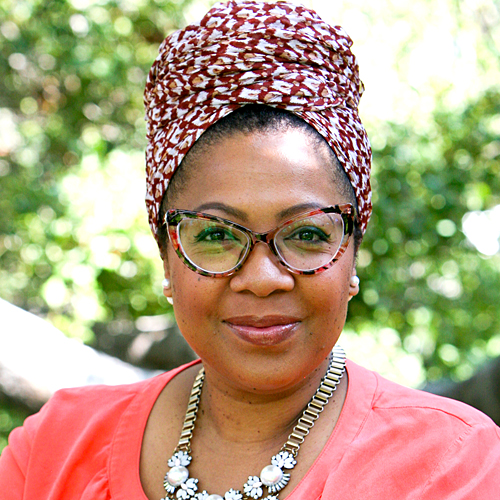
View Details / Enroll

Bridging the Gaps to Provide a Continuum of Care

Christy Jo has over 25 years of teaching experience. She is passionate about teaching in ways that simplify learning. She has been awarded the United States Presidential Volunteer Award for her community service, the Phyllis Klaus Founder's Award for her contribution to the Mother/Baby bond and the Above and Beyond Award for innovative projects that exemplify the mission of Public Health. She has also been named Lactation Educator Faculty of the Year from Childbirth and Postpartum Professionals Association and earned their Visionary Award in 2015. Christy Jo is the author of Mommy Feeds Baby and co-author of Making Milk. She created the Grow Our Own Lactation Consultant/IBCLC Prep Course which has been used to train hundreds of students to become Lactation Consultants. She currently resides in California with her husband and three children. She continues to serve her community as a birth doula, Private Practice IBCLC, Health Educator for Public Health, and faculty for the CAPPA CLE© and Childbirth Educator Programs.
Topic: Enhanced Counseling Skills for the Lactation Educator - [View Abstract]
Topic: Expanding Our Audience to Gain Greater Appreciation and Acceptance of Breastfeeding - [View Abstract]
Topic: Sharing Your Wisdom: From Abstract Idea to Awesome Prenatal Breastfeeding Class - [View Abstract]
Topic: The Art of Communication: Simplifying Birth and Breastfeeding - [View Abstract]
Promoting collaborations among caregivers and healthcare providers to ensure consistent and continual breastfeeding support.
This talk uses humor and scenarios to point out the necessity that those entrusted with a family’s care be professional, inclusive and open in order to provide the best support possible.

View Details / Enroll
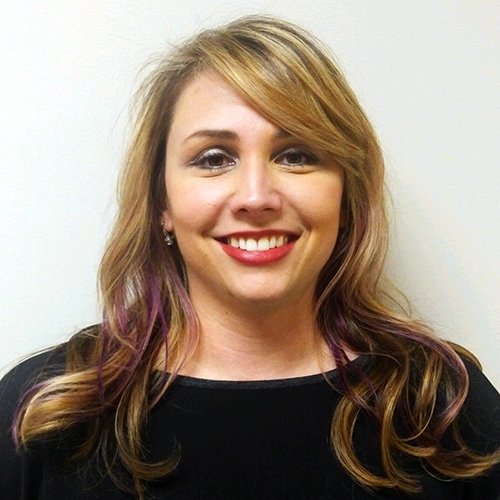
Building a Successful Breastfeeding Program in the NICU: Challenges and Practical Solutions

Amber Valentine is a Speech-Language Pathologist who graduated from the University of Kentucky with her MS in Communication Disorders. She is a Board Certified Specialist in Swallowing and Swallowing Disorders and an International Board Certified Lactation Consultant, as well as a Certified Neonatal Therapist (CNT). She worked for Baptist Health Systems, Inc for 8 years before moving to Florida where she worked for Wolfsons Children’s Hospital and Mayo Florida. She is now back in Kentucky working for Baptist Health Lexington. She has experience in adults and pediatrics with feeding and swallowing difficulties including: bedside swallow evaluations, Modified Barium Swallow studies, FEES, and pediatric feeding evaluations including NICU. She has experience with head and neck cancer patient including evaluation and treatment of swallowing difficulties, PMV use, and voice after total laryngectomy including TEP. She has provided guest lectures for the University of Kentucky, Eastern Kentucky University, and the University of Louisville on feeding and swallowing topics. She has presented at the hospital, local, state, national, and international levels on pediatric feeding/swallowing and breastfeeding.
Topic: Breastfeeding Medically Complex Infants in the Neonatal ICU - [View Abstract]
Topic: Building a Successful Breastfeeding Program in the NICU: Challenges and Practical Solutions - [View Abstract]
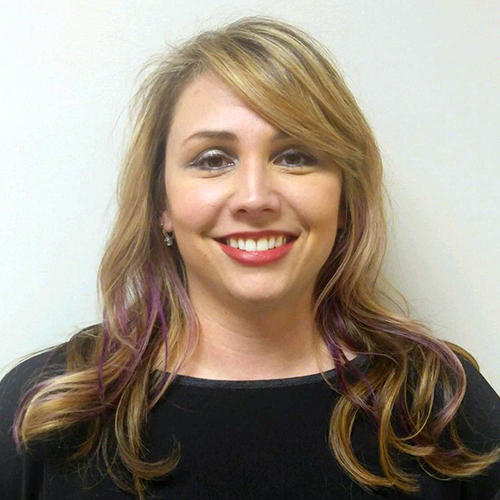
View Details / Enroll
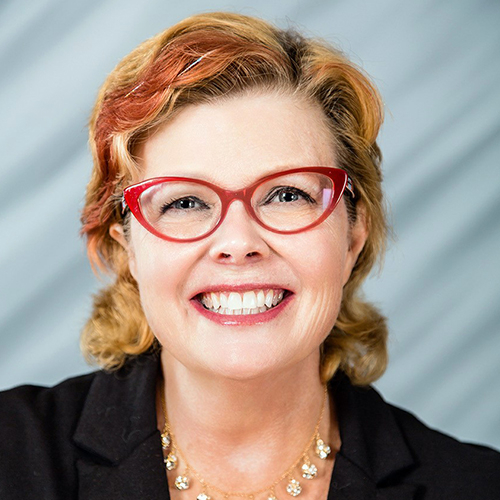
Burnout, Compassion Fatigue and Self-Care for Members of the Perinatal Team

Dr. Kendall-Tackett is a health psychologist and International Board Certified Lactation Consultant, and the Owner and Editor-in-Chief of Praeclarus Press, a small press specializing in women's health. Dr. Kendall-Tackett is Editor-in-Chief of the journal, Psychological Trauma and was Founding Editor-in-Chief of Clinical Lactation, a position she held for 11 years. She is Fellow of the American Psychological Association in Health and Trauma Psychology, Past President of the APA Division of Trauma Psychology, and a member of APA’s Publications and Communications Board.
Topic: Breastfeeding Helps Mothers Overcome the Legacy of Abuse and Adversity: It Makes All the Difference - [View Abstract]
Topic: Burnout, Compassion Fatigue and Self-Care for Members of the Perinatal Team - [View Abstract]
Topic: Burnout, Secondary Trauma, and Moral Injury in Perinatal Care Providers - [View Abstract]
Topic: Does Breastfeeding Protect Maternal Mental Health? The Role of Oxytocin and Stress - [View Abstract]
Topic: Lessons to Learn from Fed Is Best: How Can We Improve Our Care? - [View Abstract]
Topic: Mother-Infant Sleep Location: It's Not as Simple as it Seems - [View Abstract]
Topic: Trauma and Breastfeeding: Working Effectively with Trauma Survivors - [View Abstract]
Topic: What’s New in Postpartum Depression? A Summary of Current Findings - [View Abstract]
Working in perinatal care can be deeply rewarding. It can also lead to job-related burnout and secondary traumatic stress. Secondary traumatic stress, or compassion fatigue, can occur when witnessing traumatic events in the workplace. This can occur when witnessing infant death or traumatic births, or when there is too much work, or work that doesn’t seem to make a difference, and little institutional support. A recent survey by AWHONN of 464 Labor & Delivery nurses found that more than a third reported moderate-to-severe symptoms of traumatic stress as a result of incidents they encountered on the job. This has serious implications for both patients and providers. Burnout and Compassion fatigue/secondary traumatic stress can lead to physical and mental health sequelae for professionals who experience them. It can also have a negative impact on the care provided. Self-care is essential for being able to provide care to others. In this seminar, participants will learn about the causes and consequences of both burnout and secondary traumatic stress/compassion fatigue. The good news is that there is hope for recovery. Participants will learn some specific strategies for integrating self-care into their care for others.

View Details / Enroll


Sejal is an International Board Certified Lactation Consultant (IBCLC) in private practice and an infant massage educator in Hillsboro, Oregon, USA. She combines her professional expertise with her personal instincts as a mother and a supportive team member.
She holds a Bachelors in Microbiology and Clinical Laboratory Science.
She also brings with her the following comprehensive toolkit: Certified Educator of Infant Massage, Formerly Certified in skin-to-skin care for full term infants from the United States Institute of Kangaroo Care Certified Provider of Innate Postpartum Care.
She has presented nationally and internationally for GOLD lactation, ILCA, community colleges, local lactation organizations.
As a lactation consultant, she believes that every individual needs to be educated about breast health, optimal infant feeding and how breastfeeding support is a basic human right and can impact world health globally.
She strives to help each family by continuing to learn all she can about breast health, breastfeeding ecology, breastfeeding movement and parent-infant connection using the neurobiological and infant mental health lens.
When she’s not with her clients, you can find her at home in Hillsboro, Oregon, USA, listening to bollywood music, hanging out with friends and spending time with her family.
Topic: Calm & Regulated: Rethinking Our Approach to Latch and Positioning - [View Abstract]
Topic: Teaching Infant Facial Massage to Parents to Support a Functional Latch - [View Abstract]
Every interaction in lactation care with clients must set the foundation for creating an oxytocic environment. Improving client self-efficacy must be a priority for every lactation professional who works with the dyad. This presentation will dive deeper into the various factors that include not just latching and positioning but also brings attention to regulating the nervous system of the parent and baby. The presence of a lactation support professional needs to invite a neurophysiological encounter of safety in the parent and infant. This allows them to feel relaxed, unfurled, and present in the process of feeding and beyond. We will review clinical case studies, videos, photos and curious compassion for better client outcomes. Lactation professionals will be able to incorporate the ideas from this presentation into their clinical practice. They will be able to encourage client self-reliance that lasts beyond the consultation. This presentation can be used as a guide for providing a neurophysiologically inclusive feeding plan and bridging the gap between initiation and duration of breastfeeding.

View Details / Enroll
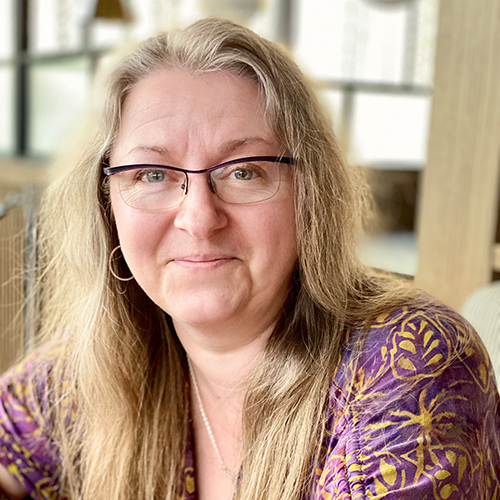
Care Plan Development for Weight Concerns in the Breastfed Infant: A Family Centred Approach

Shel works part time for the NHS in northwest England, and has four adolescents.
In addition to this, she runs a small private IBCLC practice specialising in the unsettled baby, those with faltering weight and those who are formula fed, and also holds a variety of consultant and trustee roles in various national and international organisations for advocacy and education around infant feeding; these include being Clinical Director for the breastfeeding support app AnyaHealth, being co-chair of Nursing Matters, an advocacy organisation for the breastfed infant, and being vice-chair of the UK Association for Milk Banking.
Shel has been on the development committee for 3 NICE guidelines including one on Faltering Growth, has co-authored 3 Cochrane systematic reviews, and written a book “Why Infant Formula Feeding Matters” (2022). In 2021 Shel began work towards a PhD in further understanding how best to support families with unsettled babies in universal services, which she conducts part time alongside her other commitments.
She teaches in person and online, both in her NHS role and in the consultant roles, and thoroughly enjoys sharing the knowledge she has acquired to improve the experience of families everywhere.
Understanding how to develop effective and supportive evidence-based care plans for babies whose weight and/or growth is faltering, is absolutely key to the toolkit of those who are working with breastfeeding babies. Find out more in this presentation.

View Details / Enroll
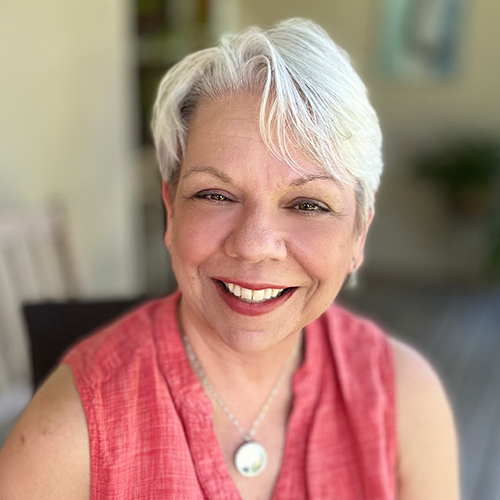

Mary Ryngaert is a Pediatric Nurse Practitioner since 1987 and an International Board-Certified Lactation Consultant since 2000. She received her MSN in the Primary Care of Children at Catholic University in Washington, DC. In her clinic at the University of Florida, she sees families for breastfeeding issues for the duration of the breastfeeding journey and provides education for pediatric residents. She is active in the local breastfeeding coalition and serves as a consultant/coordinator for the hospital Baby Friendly program. She has a special interest in supporting the development of peer counselors, especially women of color, to provide breastfeeding support within the community. She served as the Chair for the National Association of Pediatric Nurse Practitioners (NAPNAP) Breastfeeding Special Interest Group for six years and is a delegate to the US Breastfeeding Committee for NAPNAP . She was a co-author for the 2018 update to the NAPNAP Position Statement on Breastfeeding.

View Details / Enroll

Check your “Blind” Spot, The Crisis We Are Not Talking About: Transforming Color Blindness to Racial Equity

Felisha Floyd, BS, CLC, IBCLC is currently Lactation Coordinator for Hospital Corporations of America system in Florida. She also offers infant feeding support, mentorship, and education to her local community via her private practice, Beyond Breastfeeding. Felisha is the founder of Our Brown Baby, a community based breastfeeding support group, which serves to provide specialized culturally sensitive breastfeeding support to families of color. In addition to these roles, Felisha is one of the founding mothers and current President of the non-profit The National Association of Professional and Peer Lactation Supporters of Color, affectionately known as "NAPPLSC". She is also a Center for Social Inclusion First Food Equity Cohort member. Previously, she worked as a Women, Infants, and Children (WIC) Breastfeeding Peer Counselor and Breastfeeding Coordinator.
Fueled by her professional and personal passions to ensure that all mothers have access to quality breastfeeding support and resources, she has fervently pledged to reduce breastfeeding disparities in the African American community. To this end, she continually makes efforts to help increase breastfeeding rates in the African American community by unapologetically fighting that which contributes to racial health disparities. Fearlessly obsessive, she is affectionately known as the social media guru "Blactavist!" (Black Lactation Activist). This online community consists of approximately 38,000 supporters on Twitter, Facebook and Instagram, and is dedicated to empowering African American families to breastfeed.
Felisha is a national leader, an experienced trainer and speaker, and a consultant. Through her aforementioned roles, she has provided training programs across the US on topics of clinical breastfeeding, racial equity, first food justice, mentorship, power of collective impact and more. Her previous experience includes national trainings for WIC and professional consultancies for WIC Loving Support Program and the Boston Medical College's Communities and Hospitals Advancing Maternity Practices grant funded program.
Dedicated to improving the level and diversity of lactation support nationally, Felisha trains and mentors aspiring lactation consultants through her private practice. She is the co-author of Clinical Internships for the Next Generation of IBCLCs, an article featured in The Journal of Human Lactation. Felisha also serves with high honor as a member of the Global Board of Directors for Mom2Mom Global, the Advocacy Chair for the State of Florida Breastfeeding Coalition, Secretary of the Board of Directors for the United States Breastfeeding Committee (USBC). She has been honored as a recipient of the Inaugural Concrete Rose Award by Reaching Our Sisters Everywhere and recognized by USBC with the Legacy Award.
We deepen understanding of false conceptual assumptions that define racial equity by critiquing standards of organizational operations. Strengthening awareness to lactation providers by defining and determining key terms which identifies structural racism and reduces superficial outcomes. By alternating racial equity from a “hot topic” to systemic revolution to deconstruct barriers by challenging these assumptions by concepts. Identifying standards that ensure transformation and shift gears from idealist views on racial equity to strategies to promote impactful solutions. Reevaluating promises to actions which Increases understanding of racial equity through policies, practices and procedures. Empowering audience to determine their baseline and understanding of racial equity to build compacity to their ability to morph from ally to accomplice. Giving guidelines, theories and concepts to build an organizational framework to develop and implement plans to incorporate into practices. Despite a growing interest to being sympathetic to racial equity efforts, this learning environment will improve understanding of systems of racism which impact health outcomes. Giving the learners the ability to examining concrete approaches to advancing racial equity.

View Details / Enroll

View Details / Enroll





